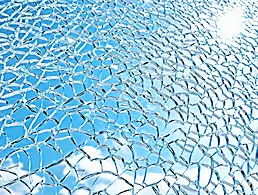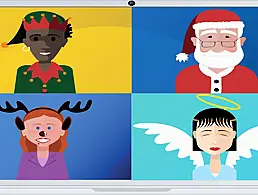The new president of ISTA, Ken Keohane, wants his tenure to be about emphasising how industry can shape science education and teaching in Ireland.
When Ken Keohane was appointed president of the Irish Science Teachers’ Association (ISTA) earlier this month, he indicated that he would bring his industry perspective to the organisation.
In a more in-depth conversation about his goals for his tenure as head of ISTA with SiliconRepublic.com, he confirms that focusing on deepening education’s link with industry is where his priorities lie.
His predecessor in the role, Prof Luke O’Neill, represented an academic approach, but Keohane wants to make his own mark on ISTA. “My priority in the ISTA presidency role is to bring an industry perspective and to work with the organisation, its members and science teachers across the country to encourage more and more students to take up science subjects and to consider careers in any of the disciplines that fall under the broad umbrella of STEM,” he tells SiliconRepublic.com.
Science is an asset for all careers
On a personal level, Keohane says he wants to bust a few myths about science education. “For example, you don’t have to be a scientist if you chose to study science… Studying science subjects provides an education about the world all around us and this knowledge can be applied to whatever career direction you decide to follow, including being a scientist.
“The knowledge and skills that students acquire through taking on science subjects provides an excellent foundation for any career,” he points out. “The ability to gather data, critically analyse a topic and apply solid problem-solving approaches are attractive for all industries and careers.”
Keohane has almost 30 years of experience working across a diverse range of sectors including medical devices, cosmetics, food and pharmaceuticals. He is currently working at Thermo Fisher Scientific in Cork, where he is head of operational excellence and learning and development. Through that role he worked closely with ISTA’s Cork branch.
Leading by example
“In my career, I’ve learnt the importance of nurturing the future, by mentoring the next generation,” he says, adding that mentorship is part of his every day in his Thermo Fisher job. He wants to extend his work with Thermo Fisher to the much wider network of Ireland’s second-level science teachers and their pupils.
“I hope to act as an example for students, demonstrating where a career in science can lead you, including working at organisations like Thermo Fisher, where, at all levels, your work will have a real impact advancing science to make a difference to millions of patients worldwide.”
Ken Keohane. Image: Clare Keogh
Does he think the current system is sufficient when it comes to preparing students for future science careers? “In my experience, it is satisfactory,” Keohane says. “I have worked abroad, and with a range of international companies, where I have observed that in Ireland, we produce some of the most highly educated and competent graduates out there. The recent graduates that I meet every day in my current role at Thermo Fisher is a testament to that.
“Our education system provides opportunities to learn about science, in conjunction with other disciplines of STEM, and this has been the platform for the establishment of our thriving, diverse industry sectors and strong economic performance.”
Progress is needed on syllabi
While he is complementary of Ireland’s education system, he acknowledges that progress “can always be improved upon” and ISTA is conscious of ensuring second-level students get “hands-on industry experience so they can effectively transition from studying science to working in science”.
However, working on improving the transition from studying science to working in science is only one of ISTA’s goals. It is also urgently calling for syllabi reform in classrooms.
In 2023, an Oireachtas Joint Committee on Education, Further and Higher Education, Research Innovation and Science, published a report on the future of STEM education in Ireland. It explored topics such as teacher recruitment and retention, diversity and women’s participation in STEM, and digital education and teacher upskilling.
In its submission to the report, ISTA said that the current science syllabi should be replaced to reflect international best practices. “A new syllabus template needs to be developed for all syllabi at Junior Cycle and Leaving Certificate level,” it said. “This template must contain more detailed information about the depth of treatment of subjects including the linking of learning outcomes to teaching and learning activities and [to] assessment.”
In oral evidence relating to the report, ISTA’s Humphrey Jones said that while the organisation supported the current education system’s efforts, it felt that the existing syllabi design presented a “significant barrier to achieving its ambitions”.
Jones made several recommendations on behalf of ISTA. “A full range of documentation must be available before implementation of the syllabi.
“This must include teacher guidelines, practical coursework guidelines, sample examination papers and sample marking schemes. We recommend an external, independent evaluation be carried out on the Junior Cycle framework and the Leaving Certificate subjects that have already been implemented using the same template. This external evaluation should be carried out by personnel from outside Ireland and by experts in curriculum design.”
As well as focusing on industry links and making students aware of the future careers that await them, it’s clear that Keohane will have to listen to members’ views on how science is taught. He says that he will listen to their concerns and he hopes to “provide some industry perspective” to help ensure that the needs of students, teachers and industry are considered in any new syllabi specifications.
Find out how emerging tech trends are transforming tomorrow with our new podcast, Future Human: The Series. Listen now on Spotify, on Apple or wherever you get your podcasts.




